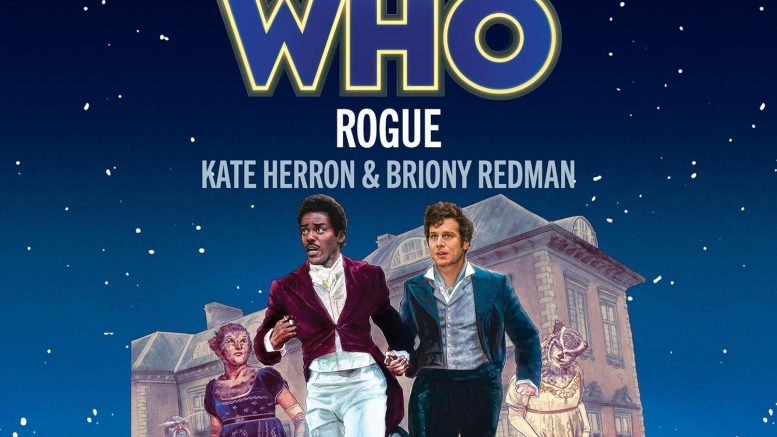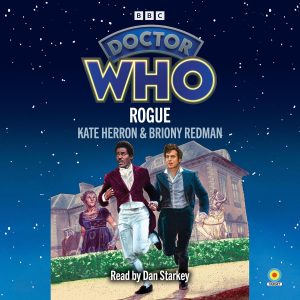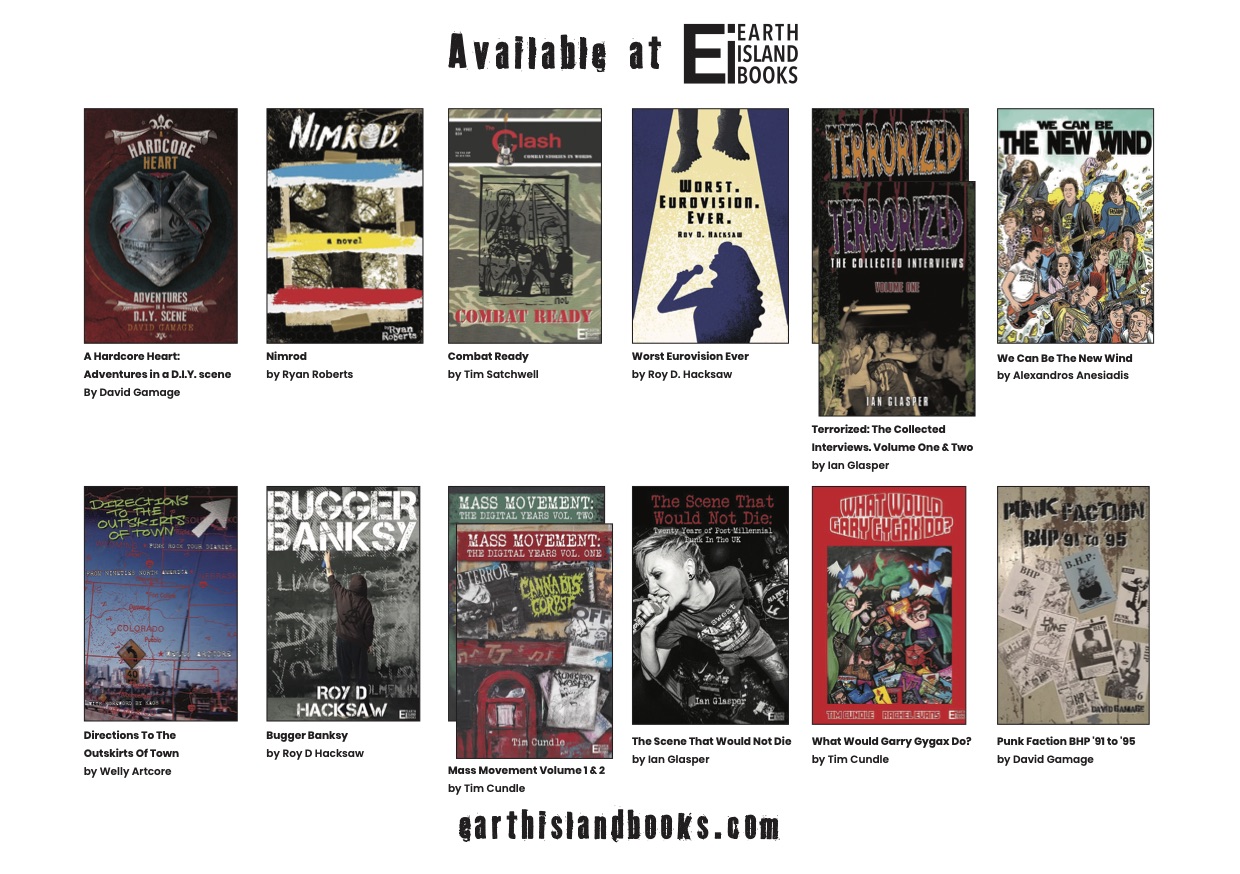Rogue on TV was a peculiar episode of Doctor Who, with three general categories of reaction.
On the one hand, there were the disappointing people who took umbrage at the kiss between bounty hunter Rogue (played by the “Oh Yes Please” on legs that was Jonathan Groff) and the still-new Ncuti Gatwa Doctor. We can discount them utterly as having forfeited their right to be taken seriously.
On the other hand, there were fans that loved everything about the episode, enjoying it as a lightweight episode of running around in frocks and frills and daft bird-aliens. Bless ’em, we love those fans, and long may they watch.
And then there were the fans who like a period romp as much as the next Who fan, but felt that the burden of getting all the frivolity and feathers into one episode alongside a heavily heaving sense of largely unspoken grief, a fast love affair, and at any point trying to take the birdlike Chuldur seriously as a threat was too much for the single episode to bear.
The novelization by episode writers Kate Herron and Briony Redman does a whole hell of a lot to win back that third section of the audience for whom Rogue on-screen ended up as too much of a shrug to necessarily ever go back to. Read the novelization, or better yet, listen to the audiobook read by Dan Starkey, and you’ll see Rogue and the Chuldur in a whole different – and frankly better – light.
For a start, Herron and Redman treat us to quite a lengthy Rogue adventure before we get into the events of Bath in 1813. It shows Rogue and his partner, Art (neatly scotching fan rumours of that partner being Captain Jack Harkness, for which mercy, let us be thankful) on a complex space-age adventure to capture the CEO of a potentially lethal soft drink company. It’s funny, and wild, and has all the smiling and swagger that Groff’s on-screen Rogue seemed to promise, but rarely deliver because of his fundamental grief and sadness.
While at first, it strikes the reader or listener as odd to have such a long, wild digression from what we saw on-screen, it’s actually a stroke of balancing genius, because it not only shows the true potential of the character, but it shows him happy, with a partner he loved, and so informs everything that follows in terms of his characterisation by the time he hits 1813.
Another crucial element of the book and audio is that it makes the honestly silly-seeming Chuldur from the on-screen version feel genuinely threatening, by giving them a longer backstory outside the bottle of the episode. Emerging to prominence in the Time War, they’re a race of practically perfect hiders, embodying people until the time is right to cause absolute chaos and carnage, and rarely leaving anyone alive to take the secret of their presence forward. We’re told of one notable case of a single survivor, and what it costs them to remain a survivor, and that readjusts the weight of the threat the Chuldur pose if they were to escape from Bath and go on to cosplay the royals in Buckingham Palace.
In fact, we even get some significantly greater sense of the Chuldur’s need to cosplay – a fairly weak element in the story as seen on-screen, and one that both lessened the impact of the villains, and felt almost like a dig at dedicated fans at conventions. There’s a sense of the need these frequently invisible people have to experience other lives, other scenarios, other dramas, and the notion is planted that, like the Slitheen before them, we’re dealing with one particularly notorious and nefarious family of Chuldur, grown careless and wasteful in their body-swapping compared to most of their species. In essence, the book makes the Chuldur we encounter make sense, which is something the pace of the crowded TV episode never really allowe them.
With those issues addressed, events play out more or less as seen on TV, but those elements add weight, balance, gravitas and jeopardy to a script which often seemed to lose those factors along the bodyswapping way. So in the novelization and the audiobook, Herron and Redman make exceptional, excellent use of their broader scope and larger canvas to give us a Rogue whose demeanour makes sense, a genuine threat to anchor the episode, and a sense of Rogue’s actual journey back to the light through his interactions with the Doctor. Which are all the things you could possibly need adding to the birdy Bridgerton bodyswapping funfest that was Rogue on-screen.
Then Herron and Redman go further. Not with the plot, but with the sheer joyous quality of their writing and quipping. With Doctor Who novelizations, you never quite know what you’re going to get. Some of the best have been fairly faithful to what was shown on-screen, but then there’s an elite, unlockable level where the writers go absolutely hog-wild and reveal what you’ve seen to you in whole new ways.
Pick up a Donald Cotton novelization – The Romans, The Gunfighters, The Myth Makers – and you’ll know what we mean. Pick up Rose by Russell T Davies, or Remembrance of the Daleks, by Ben Aaronovitch, or Day of the Doctor by Steven Moffat, or Dalek by Rob Shearman, or The Giggle, by James Goss. These are top-tier works of reinvention and expansion and more often than not, joy-fuelled bare-faced cheek.
Are we saying Herron and Redman elevate Rogue to that league in their novelization?
Mmmmore or less, yes. From that bold but necessary gambit at the start, giving us essentially a Rogue mini-tale, to the assured wit they show throughout, with asides like Kylie Minogue’s Can’t Get You Out Of My Head eventually becoming Earth’s “national anthem,” to the kind of confident asides to the reader that help expand their universe beyond what we ever saw on TV, the audiobook amps up the fun, but anchors it in real emotions and a broader reality, delivering what is essentially a better version of Rogue than ever passed before the TV cameras.
And then, just to make sure of the thing, audiobook reading duties go to Dan Starkey, who is both steeped in Doctor Who tradition and an astonishingly versatile voice actor, able to fill the story with every voice it needs, and give both the right comedic weight and the right drama to the intervening narration.
So – best Rogue ever?
Yyyyyyep. Herron and Redman and space and time and Starkey deliver in the audiobook everything you knew you needed from the audiobook of Rogue – and then so much more to balance the story from TV and let it really, truly dance. Tony Fyler





Be the first to comment on "Doctor Who: Rogue – Written by Kate Herron & Briony Redman & Read by Dan Starkey (BBC Audio)"